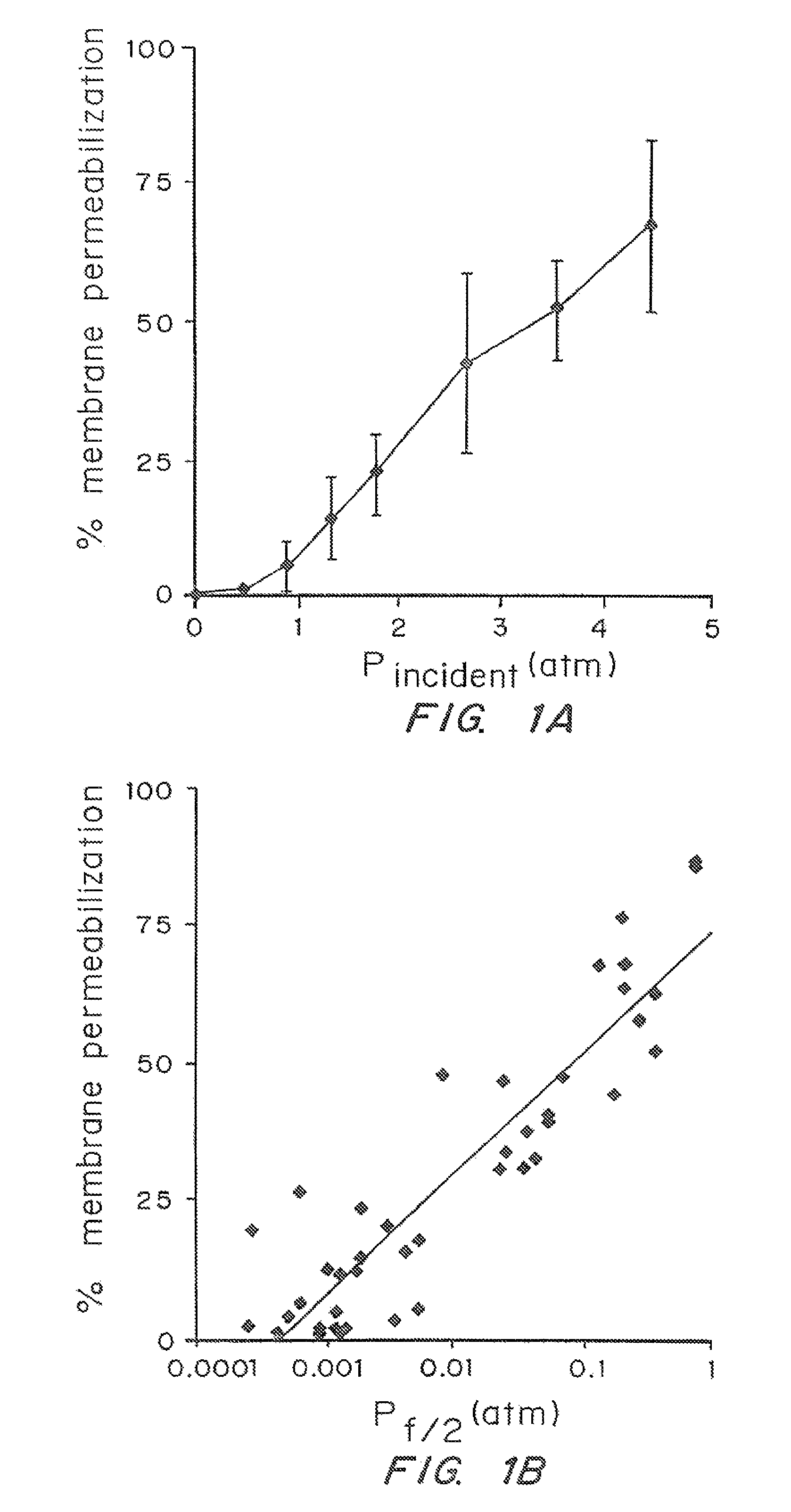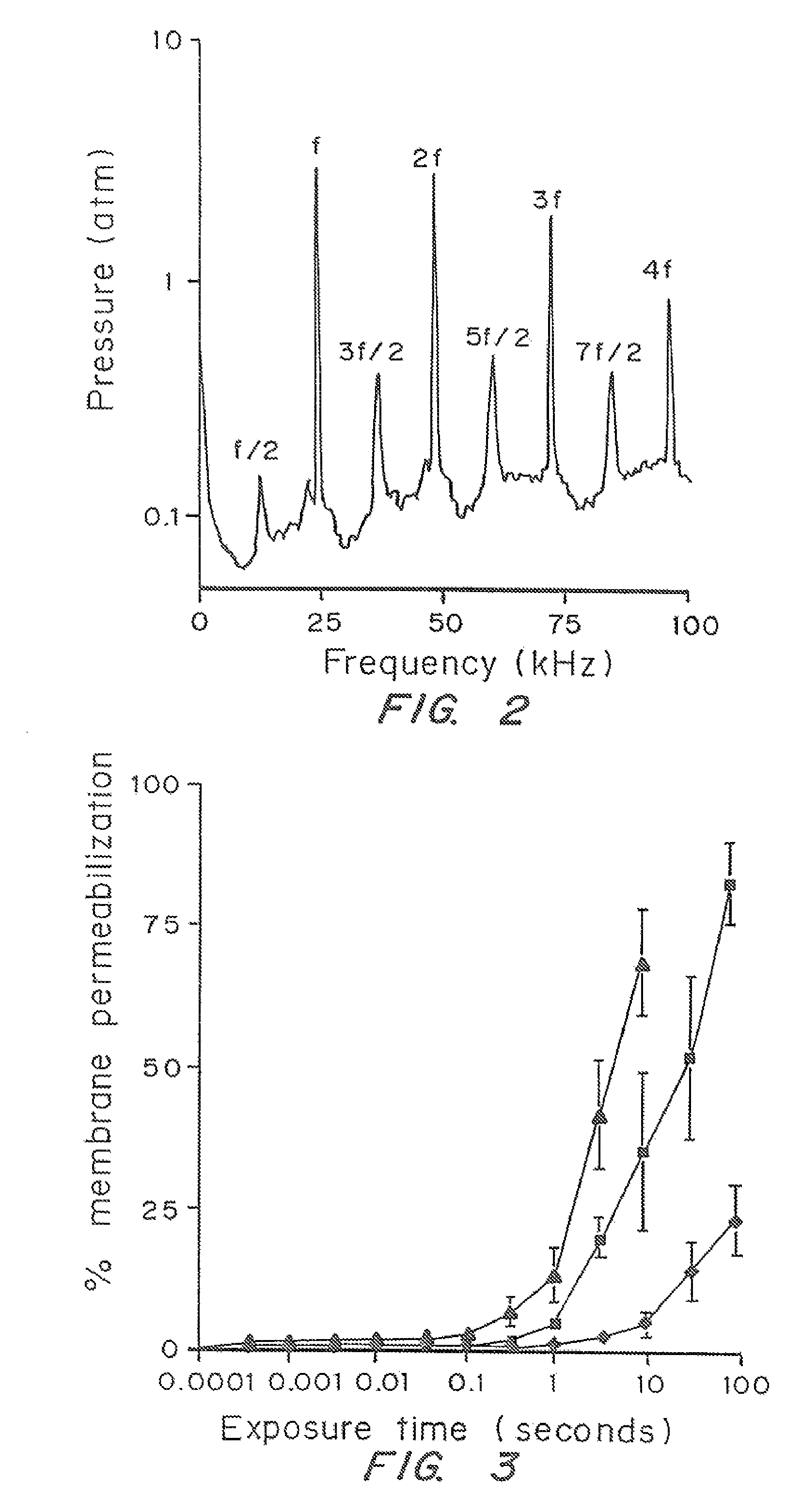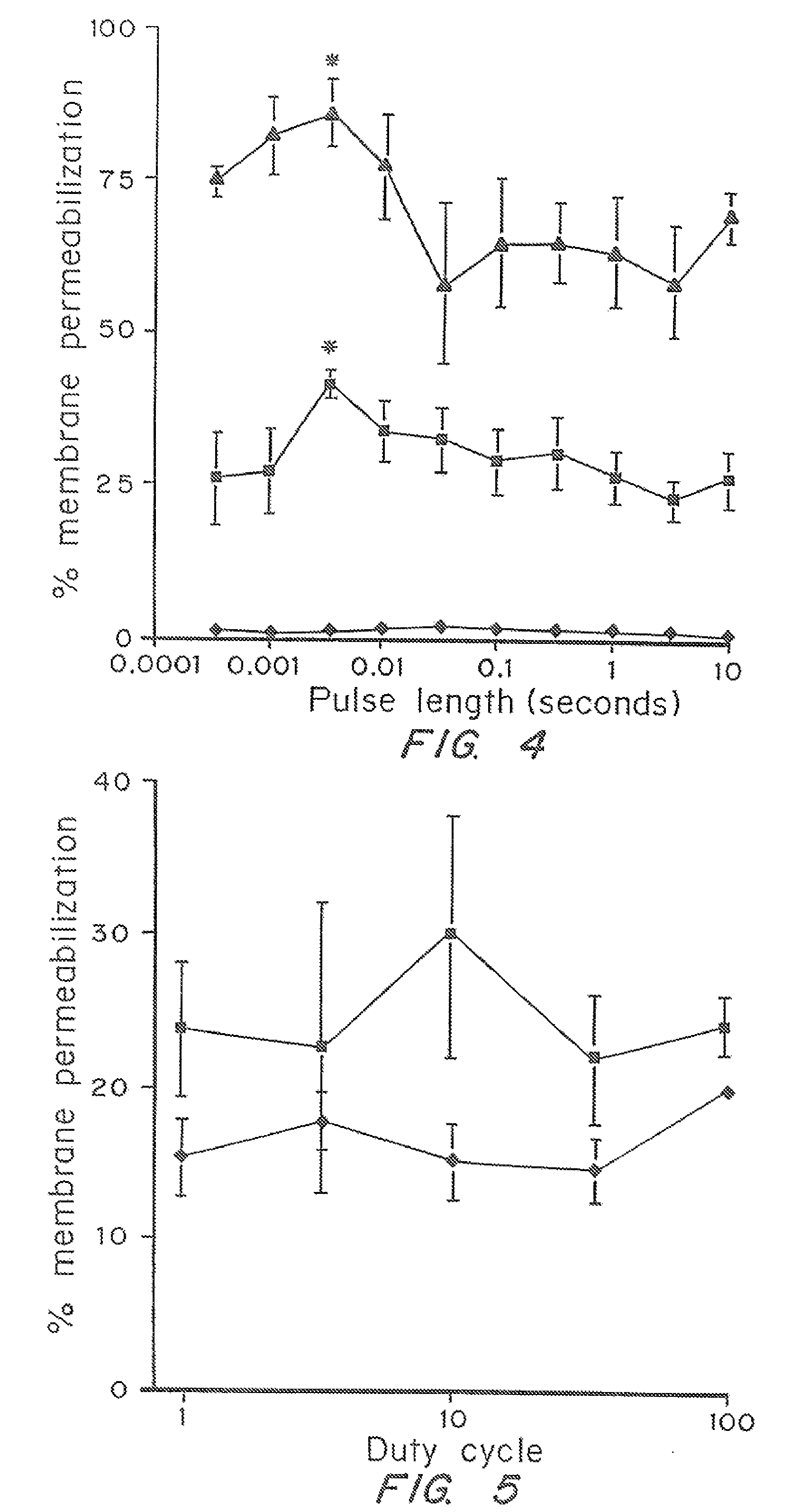Method of applying acoustic energy effective to alter transport or cell viability
a technology of acoustic energy and cell viability, applied in the field of controlled application of acoustic energy to tissue and cells, can solve the problems that the effect of ultrasound parameters on cavitation and cell membrane permeabilization is not sufficiently understood for the development and optimization of acoustic techniques, and achieves the effect of altering the permeability of cells
- Summary
- Abstract
- Description
- Claims
- Application Information
AI Technical Summary
Benefits of technology
Problems solved by technology
Method used
Image
Examples
example 1
Exposure of Bovine Red Blood Cells to Ultrasound
[0052]The dependence of cell membrane permeabilization on ultrasound parameters was determined and the acoustic signals which correlate with observed membrane permeabilization were identified.
[0053]Bovine red blood cells were exposed to ultrasound at 24 kHz over a range of controlled conditions. The degree of membrane permeabilization was measured by release of hemoglobin and was determined as a function of ultrasound parameters and measured acoustic signals.
[0054]Sample Preparation
[0055]Freshly drawn bovine blood with Alsevers anticoagulant (Rockland, Gilbertsville, Pa.) was stored at 4° C. for up to 10 days. Red blood cells were collected by centrifugation (GS-15R, Beckman Instruments, Palo Alto, Calif.; 400 g, 10 min., 4° C.); washed three times with phoshate-buffered saline (PBS; pH 7.4; Sigma, St. Louis, Mo.); and then suspended in PBS at a red blood cell concentration of 10% by volume. The cell suspension was ...
example 2
Ultrasound-Mediated Disruption of Prostate Tumor Cell Membranes
Introduction
[0092]The effects of ultrasound exposure on size, lifetime, and permeability of membrane disruptions in living cells were investigated quantitatively. It was found that ultrasound disruptions were a few nanometers in size, have a lifetime of approximately one minute, and induce extensive molecular uptake.
Methods
[0093]Prostate tumor cells (DU-145) were suspended in RPMI-1640 medium with 10% fetal bovine serum at 5×105 cells / ml. For each experimental condition, a 3 ml polypropylene tube was filled with the cell suspension at room temperature (22±2° C.) and the top of the tube was closed without entrapping any air bubbles. The cells were exposed to ultrasound at 24 kHz in a chamber that consisted of a cylindrical piezoelectric transducer sandwiched between two PVC pipes and filled with deionized and degassed water at room temperature. Pressure, pulse length, duty cycle, and the total exposure time of ultrasound...
PUM
 Login to View More
Login to View More Abstract
Description
Claims
Application Information
 Login to View More
Login to View More - R&D
- Intellectual Property
- Life Sciences
- Materials
- Tech Scout
- Unparalleled Data Quality
- Higher Quality Content
- 60% Fewer Hallucinations
Browse by: Latest US Patents, China's latest patents, Technical Efficacy Thesaurus, Application Domain, Technology Topic, Popular Technical Reports.
© 2025 PatSnap. All rights reserved.Legal|Privacy policy|Modern Slavery Act Transparency Statement|Sitemap|About US| Contact US: help@patsnap.com



